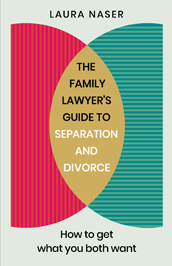What Can I Do If My Child Or Children Refuse To Attend Contact With The Other Parent?

- This blog contains affiliate links, which we may receive a commission for purchases. The decision is yours, whether or not you decide to buy.
This is a question which I imagine all family solicitors have been asked at one point or another, either by their own client or posed by the other party and/or their solicitor. Despite how common it may be, the answer is far from simple.
Firstly, much will depend upon how relations are between the parents and whether there is a child arrangements court order in place.
If there is a court order in place, then the current law is clear and there is an expectation that the resident parent (with whom the children live) must “by argument, persuasion, cajolement, blandishments, inducements, sanctions (for example, ‘grounding’ or the confiscation of mobile phones, computers or other electronic equipment) or threats falling short of brute force, or by a combination of them, do their level best to ensure compliance”(see the case “Re H-B (Contact) [2015] EWCA Civ 389”).
In effect, this means that parents must take responsibility for encouraging their children by any reasonable method necessary to attend the court ordered contact.
Failure to do so can lead to the resident parent being found in breach of a Court order and facing heavy criticism at Court. It may also impact their standing before the Court in any subsequent hearings or cases regarding their children.
The only real proviso to this rule is if there are genuine safeguarding concerns for the children if placed in the non-resident parent’s care in which case this should be raised with the Court at the earliest opportunity.
Alternatively, if there is no Court order in place regarding the child arrangements and there is either no agreement at all or an informal set of contact arrangements, then it would still generally be advisable for the resident parent to do all they can to encourage their children to attend contact with the non-resident parent if there are no safeguarding concerns.
That said, failing to do so when there is no existing Court order in place will not necessarily become an issue for the Court to deal with unless the non-resident parent makes an application for a child arrangements order which, of course, may be more likely if contact does not take place or is not supported by the resident parent.
It is therefore often advisable for contact to be encouraged in the same way as set out above – i.e. by any reasonable method to encourage the objectionable child or children to attend.
If the parents are on reasonable terms, then it may be possible for them to discuss and agree a way forward which the children are more susceptible to.
What is, however, important is that children are not seen in such circumstances to be dictating whether they spend time with the other parent which is what the Court is keen to avoid happening (again see the case “Re H-B” in this respect).
Ultimately, the Court’s current view is that parents often face challenges with children, particularly older children, regarding many less desirable tasks such as visiting the dentist, seeing older relatives, completing homework or revising for exams but parents must still do all they can to encourage their children to complete these tasks for the children’s benefit.
As such, the Court believes that the same should be true of spending time with the non-resident parent after a separation or divorce.
This can be a difficult and stressful situation to find yourself in, whether you are dealing with the objectionable children not wishing to go to contact or if you are desperate to spend time with your children who may be refusing to see you.
If this applies to you, then we would be happy to discuss your matter with you and to consider your options for resolving the issue.
We would especially encourage non-resident parents who may be encountering similar issues to take advice without undue delay since, the longer matters are left, the more entrenched the children’s views may become and the older they will get which is when their voice will begin to have greater impact on the outcome of the case.
Furthermore, silently acquiescing and doing nothing may be viewed as an acceptance by the non-resident parent of the children’s and/or the resident parent’s position making it potentially more difficult to change the arrangements.
Written by Matthew Thom Family Lawyer at www.summitlawllp.co.uk
The family team at our firm would be happy to discuss your matter with you and we can be contacted on 020 7467 3980 or by e-mail at info@summitlawllp.co.uk.
PHOTO: OLIVER- RAGFEIT
You may also like
Books
Buy now from Amazon
- Divorce & Money: Make the Best Financial Decisions During Divorce
- The Family Lawyer’s Guide to Separation and Divorce: How to Get What You Both Want
- Parenting Apart
Podcast
Kate Daly is co-founder of amicable and host of the The Divorce Podcast. Kate created The Divorce Podcast to discuss and demystify divorce, separation and co-parenting in the UK. In each episode, Kate is joined by experts in their field to explore divorce and separation from every angle.
Articles
- Affirmations To Help You Through Divorce
- Be The Best Parent You Possibly Can Be Following A Divorce By Working On This Key Trait
- Can A Life Coach Help You After Divorce?
Videos
Practical advice and tips from professionals on what to do with issues and challenges around divorce from parenting to finance.
Events
Practical tips & advice designed to help people going through divorce, whether online or in person.
Useful links
Here's a selection of organistaioins from parenting to finance to help you with your divorce.
Parenting professionals
Related Posts
-

Divorce And Friendships: Navigating Shared Social Circles
-

Managing Divorce Post-Christmas: Unveiling The January Surge In Separations
-

Thriving Through The Holidays: A Guide To Resilience And Self-Discovery After Christmas, Separation, And Divorce
-

5 Rights Of A Child After Divorce
-

Six Ways A Divorce Coach Can Transform Your Divorce Journey




.jpg)



.jpg)

